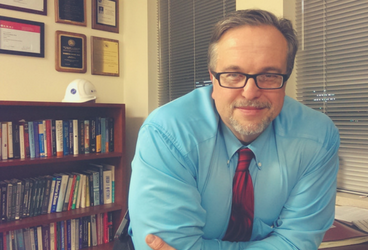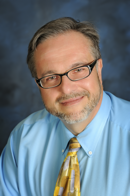
August 28, 2017 |
Exclusive Interview with Dr. Warren Bickel, Head of the International Quit & Recovery Registry (IQRR)
The Recovery Research Institute sat down with Warren Bickel, PhD, head of the International Quit & Recovery Registry (IQRR), to learn about what it is, and how a simple idea has evolved into a platform changing thousands of lives.
CAN YOU TELL US WHAT THE INTERNATIONAL QUIT & RECOVERY REGISTRY (IQRR) IS?
The IQRR is for anyone struggling with addiction, whether it be a substance addiction or a behavioral addiction like overeating or gambling, and/or is in recovery from an addiction and for those who seek to talk about their addiction and recovery process with others going through similar things in their life, and anyone else interested in addiction and recovery. Currently, the IQRR is home to 7,600 members, of which 3,100 are website members and recovery heroes.
The International Quit & Recovery Registry (IQRR) seeks to understand what allows people to succeed in overcoming addiction, whether to tobacco, alcohol, drugs, or harmful behaviors. The registry taps the insights and experiences of people who are in recovery from an addiction.
On a confidential basis, registrants, known as ‘Recovery Heroes’ provide scientists with information about their addictions and their paths to recovery. They may also be invited to participate in studies aimed at understanding how addiction affects the brain. This research may involve the completion of online questionnaires, the undertaking of web-based behavioral tasks, or participation in more in-depth studies at the Addiction Recovery Research Center in Roanoke, Virginia. As the scientists learn about recovery from the Recovery Heroes, they will share those findings on the Registry website.
Regardless of the level of their participation, all Recovery Heroes are encouraged to share their stories, to offer hope and inspiration to those struggling with addiction.
Lastly, IQRR members and recovery heroes have the opportunity to participate in a larger, longitudinal-like website interaction/assessment that takes place over several weeks. This is called the Social Interactome and it is a research project that explicitly examines how social networks can be used to help people in recovery.
WHEN & WHY WAS THE IQRR FOUNDED?
The IQRR was founded in September 2011 to help us help others; addiction is all too common and affects many of those we love and care about, providing a community to help those in recovery stay in recovery is key. So, what we mean by that is the IQRR was founded as a way for people in recovery from a substance addiction (e.g., alcohol) or behavioral addiction (e.g., overeating) to connect with others going through similar experiences and to share their stories with one another. By joining the Registry, those in recovery find a thriving community of supporters and resources.
Second, wrapped into those in recovery being able to communicate with others going through similar experiences, is that participants are able to take scientific assessments about addiction and the recovery process and they can earn points or prizes for taking the time to complete various assessments. By completing these assessments and tasks, it allows us as researchers to gather detailed information and insights into the addiction and recovery process, thereby contributing and paying forward our scientific understanding of these processes.
“The public needs to understand that addiction is a disease; it has hallmark signs and symptoms at both the behavioral level, the neurobiological level, all the way down to the genetic level. It isn’t the result of weak character or compromised morals, but the result of lawful, genetic, and lifestyle factors and environmental opportunities, just like any other disease.”
WHAT IS A NOTABLE ACCOMPLISHMENT OF THE REGISTRY THAT YOU WOULD LIKE TO HIGHLIGHT FOR OUR READERS?
I think the most notable accomplishment is the sheer reach the IQRR has had in its young history. On our website we have a recovery heroes map that shows geographically where our recovery heroes are located. In the first few years of the IQRR, to see recovery heroes from all over the world tells us that we have constructed something very useful and generalizable to many different kinds of people in vastly different areas. This map illustrates how prevalent addiction and recovery are in today’s world, but also just how many people are willing to share their stories and insights with us and others to improve our understanding and ability to help those in recovery.
I think the biggest barrier to recovery is honestly the amount of knowledge we have about the addiction and recovery process. Although there have been great strides of enhancement in neuroscience and fields related to addiction and recovery, we still know very little in the grand scheme of things. Moreover, we tend to focus more on the addiction aspect of “addiction and recovery” and neglect our understanding of the recovery process. The IQRR is innovative because it brings together several thousands of people who have dealt with addiction and are still in recovery and attempts to learn about this population through not only the scientific assessments and tasks, but also through communication between recovery heroes.
WHAT IS SOME ADVICE YOU WOULD GIVE TO SOMEONE IN ACTIVE ADDICTION CONSIDERING RECOVERY?
I would advise someone considering recovery to take initiative as soon as possible. There are many options and ways to treat addiction, and just like anything else, there are methods that are objectively superior in dealing with addiction, maintaining recovery and preventing relapse compared to others; different treatments will work better for certain people or certain addictions than others. My advice would be to do some research, don’t be afraid to ask for help, and find the best scientifically-sound treatment for you. Try to steer clear from treatments that don’t have data to back-up their claims or treatments that are not rooted in our evolving scientific understanding of addiction.
ABOUT

Warren Bickel, PhD, is the head of the International Quit & Recovery Registry (IQRR), long-time addiction researcher and director of the Addiction Recovery Research Center of the Virginia Tech Carilion Research Institute.
